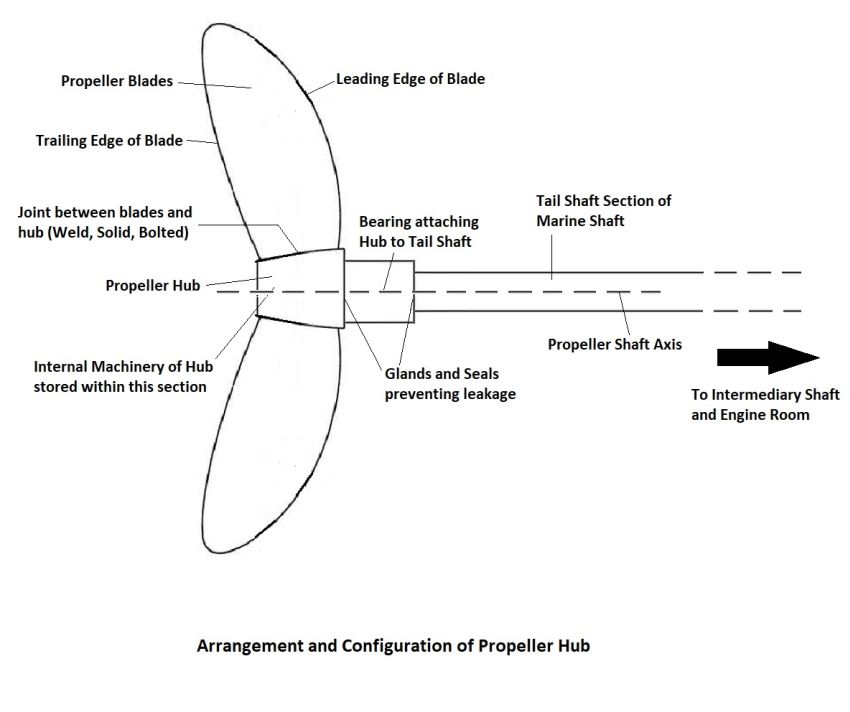Large Propellers: A Comprehensive Guide to Repair or Replace
Propellers play a pivotal role in the operation of large boats and marine vessels. Functioning as the workhorses of maritime transport, they convert engine power into navigational thrust, allowing the vessel to traverse across the vast stretches of water. However, just like any other piece of machinery, propellers can undergo wear and tear or sustain damage. When that occurs, boat owners are faced with a significant decision: repair or replace?
The goal of this blog post is to provide an extensive, professional guide to help you navigate this dilemma. We will explore several critical questions about propeller maintenance and offer a deep dive into the various considerations that factor into making this decision.
Propeller Basics: Understanding Your Asset
Before we delve into the specifics of repair and replacement, let's begin by understanding the propeller's fundamental aspects. Comprising several blades connected to a hub, propellers work on the principles of physics, leveraging differences in pressure to create force and thus propel the boat forward. However, depending on their construction material and design, not all propellers are created equal.
Understanding the material and type of your propeller is the first step in assessing whether to repair or replace it.
Can a Propeller Be Repaired?
The short answer is yes. Depending on the type of damage and its extent, a propeller can often be repaired. However, not all damages are repairable, and sometimes, despite the ability to mend the damage, it might not be the most cost-effective solution. It's important to consult with a professional propeller repair service to examine the condition of your propeller and provide expert advice on the most suitable solution.
What Kind of Propeller Do You Have?
Different propellers have varied characteristics and are made from different materials such as stainless steel, aluminium, bronze, or plastic composite. The type of propeller you have can significantly impact the repair vs. replacement decision.
Stainless steel propellers, for instance, are sturdy, durable, and better suited for high-performance boats. They are also typically more expensive. Hence, if a stainless steel propeller is damaged, the repair might be a more economical option.
Aluminum propellers, on the other hand, are lightweight and less expensive. They are commonly used in smaller boats and personal watercraft. Given their lower cost, if an aluminum propeller is significantly damaged, replacement might be more cost-effective than repair.
For AB2 propellers, commonly used in commercial vessels, repairs are feasible. However, factors such as the type of damage, potential impact on performance, and the overall longevity of the propeller post-repair must be taken into account.
What Kind of Damage Are We Talking About?
Propellers can be subjected to a variety of damage types. Understanding the nature of the damage is critical in determining whether to repair or replace.
Minor Damages: These include dings, scratches, small bends, and cavitation damage (small pitting caused by vapor bubbles). Typically, minor damages can be addressed by propeller repair services. The propeller can be reshaped, polished, and balanced to ensure it functions as intended.
Major Damages: Major damages include severe bends, large cracks, broken blades, or extensive corrosion. In such cases, the propeller may be beyond repair. Even if repairs are possible, they may not restore the propeller to its original performance level and may compromise its structural integrity.
Can You Run a Large Boat With a Damaged Propeller?
Technically, yes, you could run a large boat with a damaged propeller, but it is strongly discouraged. A damaged propeller can adversely impact the boat's performance, reducing speed, maneuverability, and fuel efficiency.
Furthermore, operating a boat with a damaged propeller can lead to additional complications. The imbalance caused by the damaged propeller can produce vibrations that damage the boat's propulsion system over time, leading to more extensive (and expensive) repairs. For the safety and longevity of your vessel, it's recommended to address propeller damage promptly.
Evaluating the Performance of a Repaired Propeller
A well-executed repair job by a professional should restore a propeller to perform nearly as good as new. However, this largely depends on the severity of the initial damage and the expertise of the repair service.
Minor damages, once repaired, should not significantly affect the propeller's performance. However, for major damages, even after repairs, there might be slight performance drops due to changes in the propeller's geometry or weight distribution.
Large Boat Propellers: Understanding Damage Limits
Every propeller, irrespective of its type, has a damage limit. If a blade is severely bent, or a large section is missing, or corrosion has consumed a significant portion of the propeller, it's typically past the point of repair. Propellers in such conditions are better replaced than repaired.
Repair vs. Replacement: The Smart Choice?
Repairing a propeller can be a smart choice when dealing with minor damages or expensive propellers like those made of stainless steel. Repairs can restore functionality while saving money compared to buying a new propeller.
However, when the damage is severe, the propeller's integrity and performance might be compromised, even after repair. In such cases, replacement is the safer and smarter choice.
Remember, the cost of repair should also be weighed against the cost of a new propeller. If the repair costs approach or exceed the cost of a new propeller, investing in a new one is often the best decision.
Finally, consider the potential impact on performance and the future reliability of the propeller. The best approach will vary depending on the individual circumstances, and it's always wise to consult with a professional propeller repair service to make the most informed decision.
In conclusion, the decision to repair or replace a large boat propeller is not a one-size-fits-all answer. It depends on various factors, including the type of propeller, the extent and nature of the damage, the potential repair costs, and the long-term effects on performance and reliability. A well-informed decision, backed by professional advice, can ensure your boat continues to navigate smoothly for many more nautical miles.
#Boating #PropellerMaintenance #PropellerRepair #PropellerReplacement #MarineEngineering #BoatLife





Comments